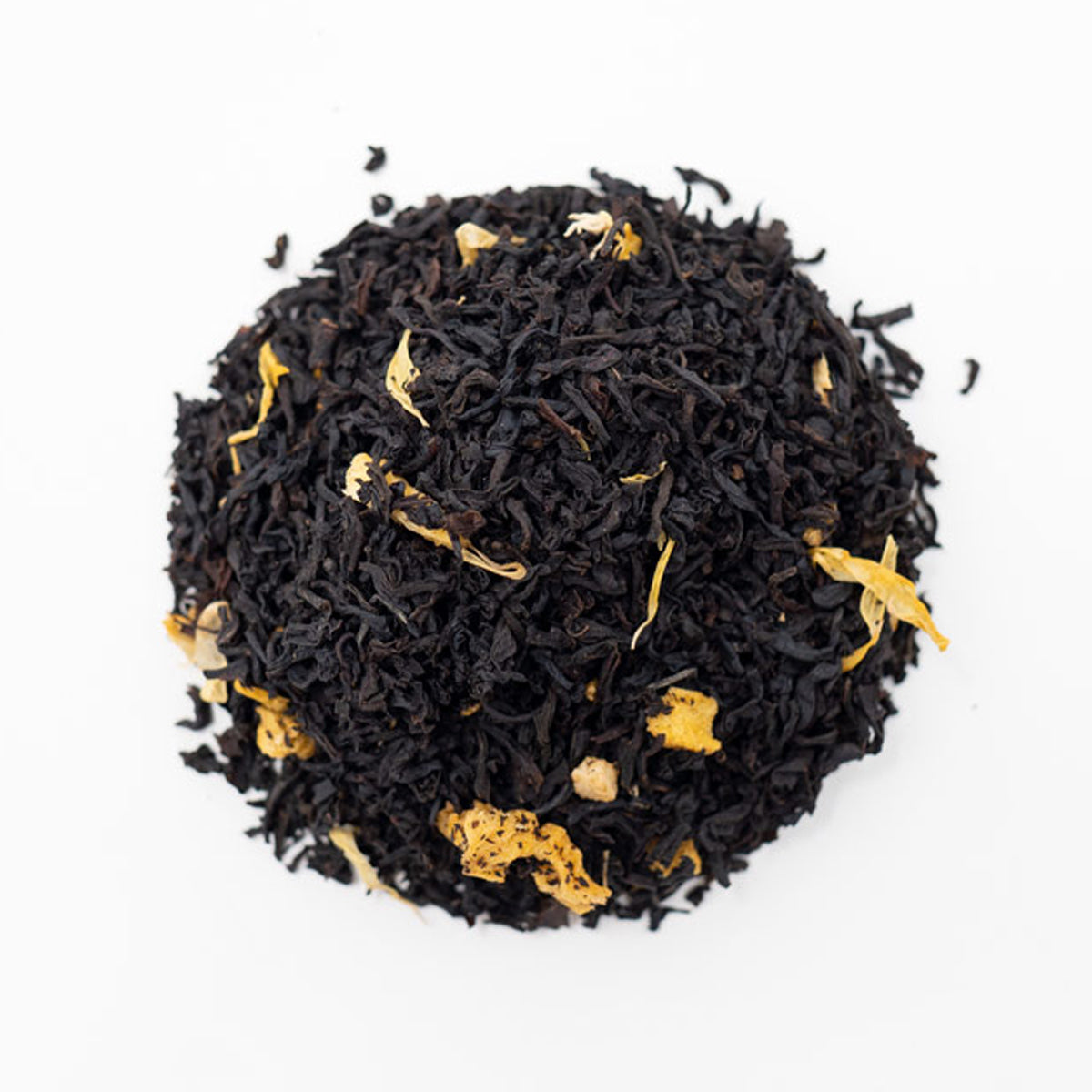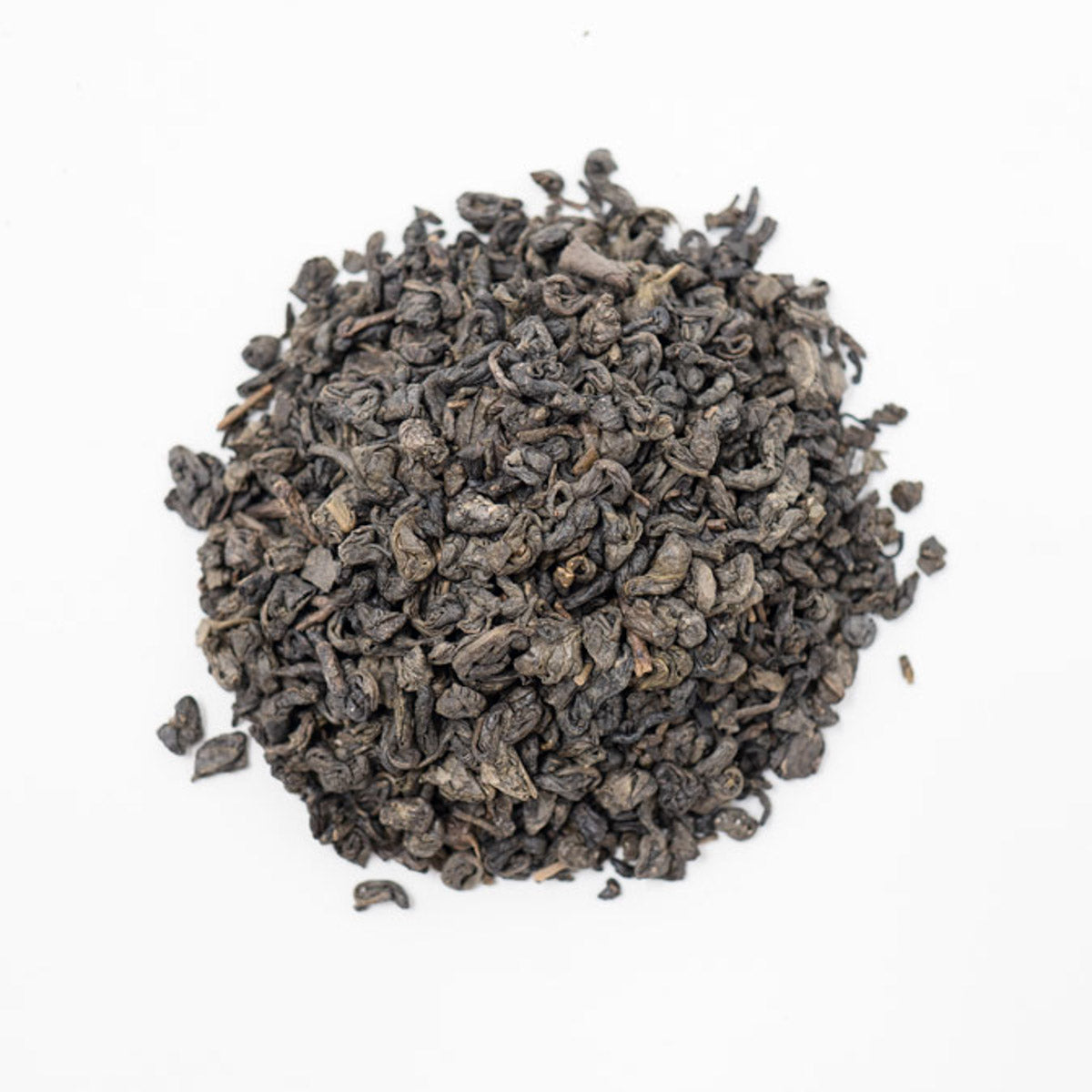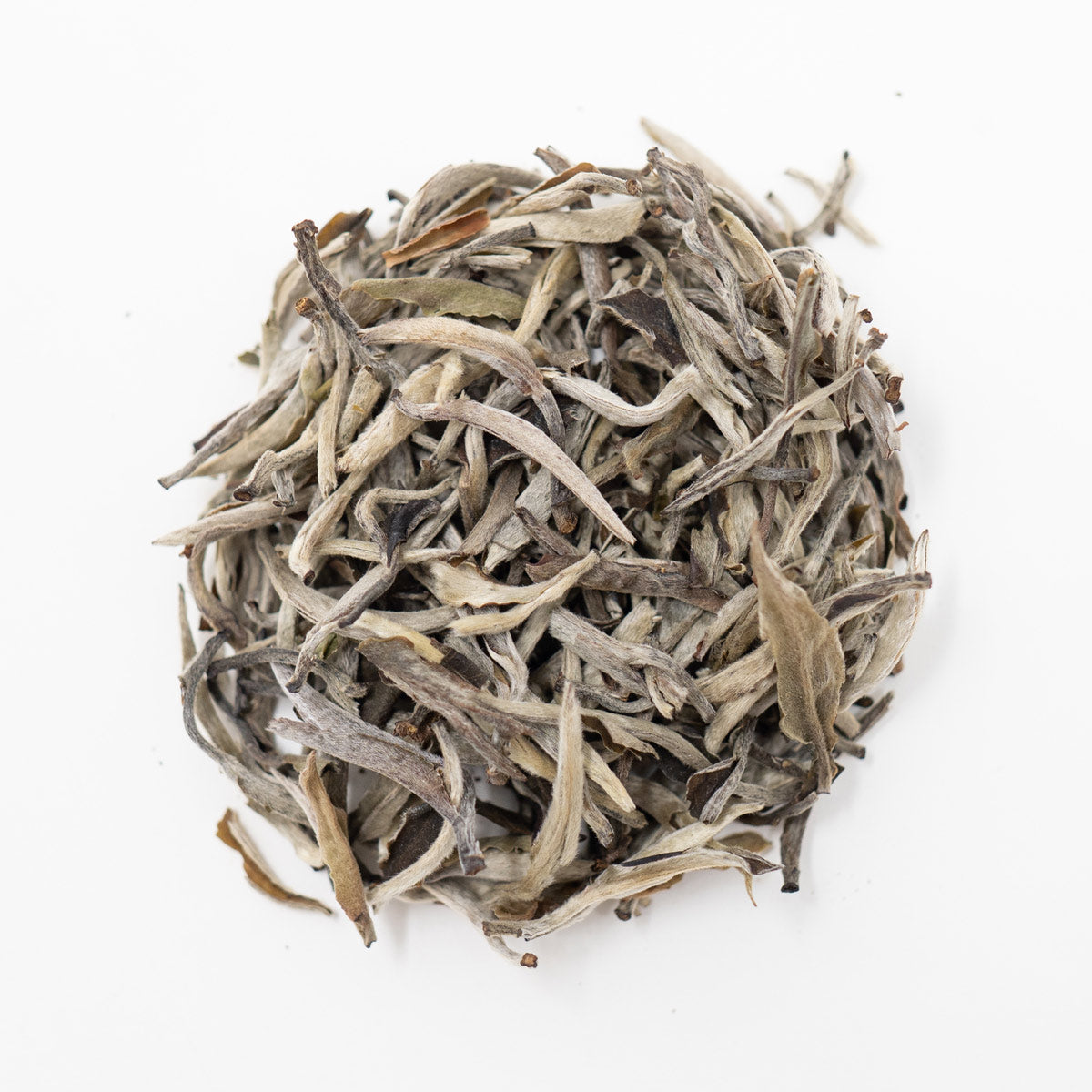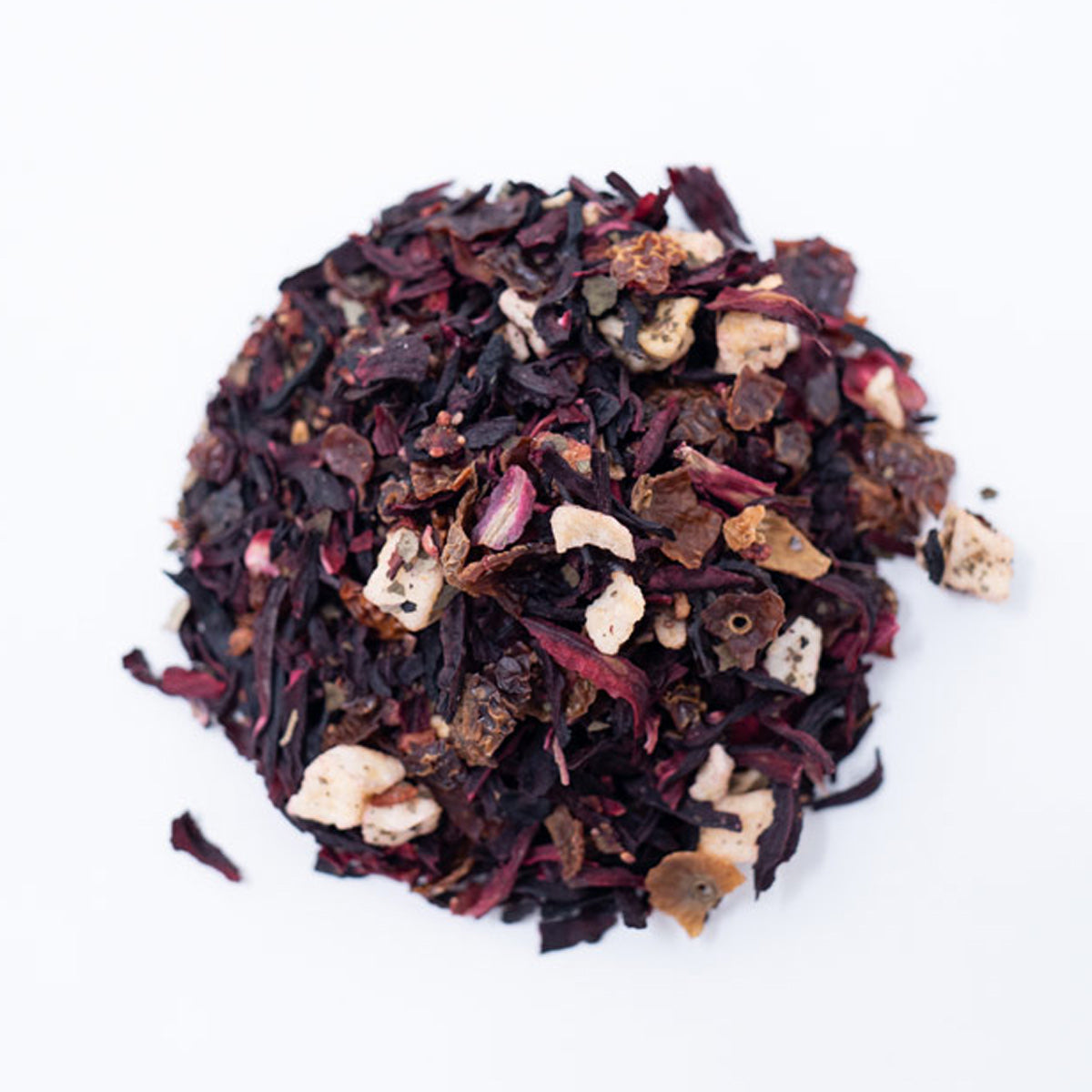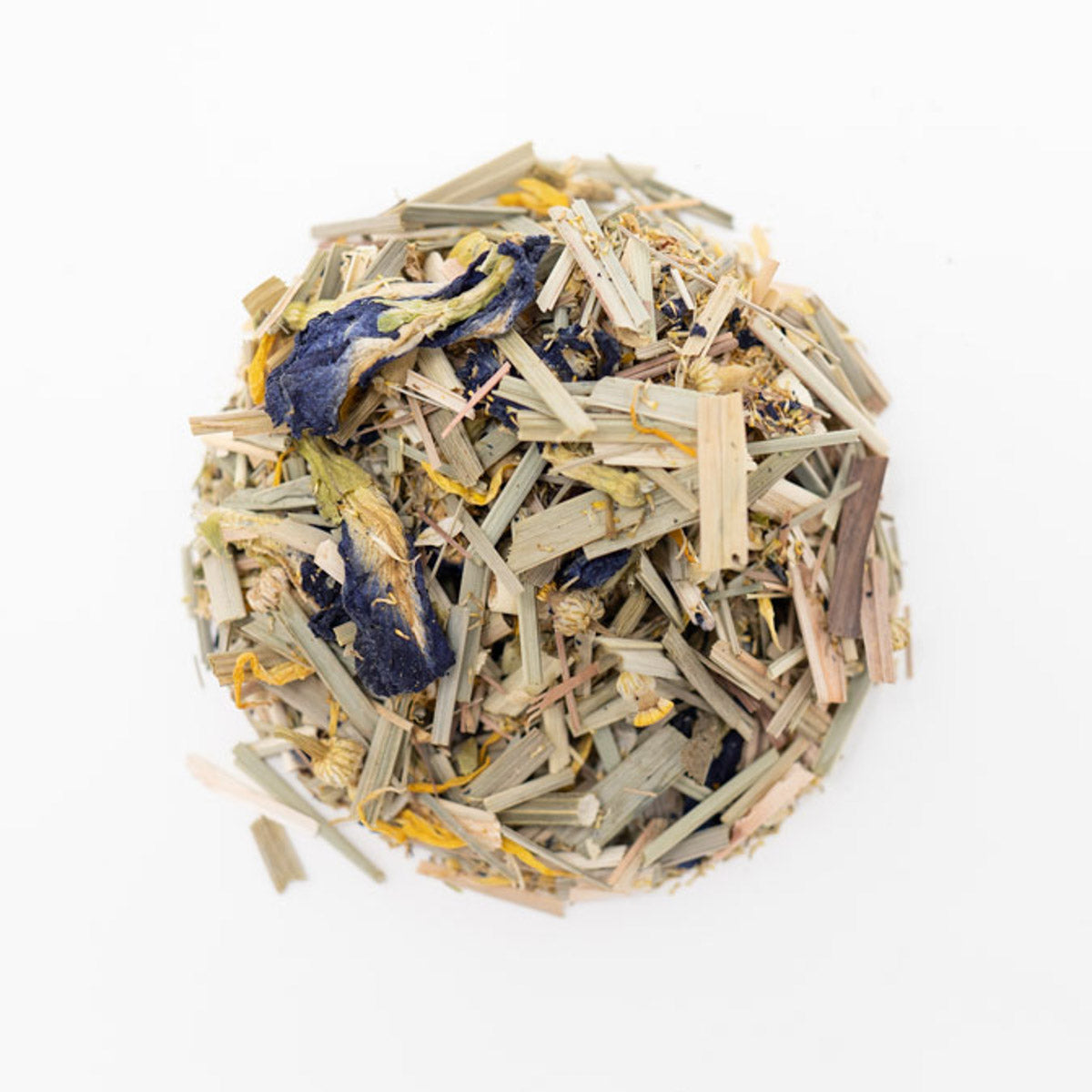How Tea Can Be a Benefit to Your Health & Wellbeing
What is the first thing that comes to your mind when you think about tea? Is it loose-leaf tea in an infuser? Perhaps finely stone-ground matcha? Maybe even clippings of herbs and fruit? Whatever different ideas come to your mind, there is one thing that all tea has in common, no matter where it came from or what type: Antioxidants. No matter what tea you're drinking, whether it is iced or hot, black or green, you're going to ingest a lot of antioxidants. If there's one word you'll repeatedly see in this blog, it's antioxidants, and that's because it's hard to write about tea without writing about its possible health benefits. Antioxidants aren't the only benefits found in tea. Although the most common compound among all teas, every tea offers many benefits beyond antioxidants. Below are the list of tea types and their unique health advantages...
Black Tea
Black tea is one of the most popular teas to drink. Today, 90% of all tea sold in the U.S. is black tea. The production of black tea continues to derive from China, India, Sri Lanka, and Africa. Black tea can be brewed in various ways and pairs well with many different flavor additives. It is a base for many of our best-sellers and is a personal favorite here at Hackberry. Due to its bold flavor, versatility, and ability to give you a boost of energy, more and more people are falling in love with this prominent tea. Depending on the steeping time, black tea can hold a lot of caffeine. That assisted energy is often what attracts people to this type of tea. But what other benefits, precisely health benefits, can black tea provide in its delicious cup?
Many studies have revealed that black tea can positively impact heart health. One study published in 2017 showed a reduced risk of ischemic heart disease when drinking a cup of plain hot black tea every day. The research discovered that this is due to the high amounts of antioxidants (flavan-3-ols, flavonols, theaflavins, and gallic acid derivatives) found in black tea. Lowered cholesterol levels were an additional benefit exposed during this research.
As mentioned above, black tea has a high number of health-promoting flavonoids and theaflavins. Increased flavonoids are often linked to a decreased risk of advanced cancer, specifically prostate and ovarian. A study published in 2016 showed how the theaflavin levels in black tea were able to stop the growth of cells that prohibit cisplatin, an anti-cancer drug, from working correctly. Black tea is a natural and less toxic way to diminish cancerous cell growth.
Black tea is a great beverage to drink when you have a headache or upset stomach caused by digestive issues. The tannins in black tea can calm inflammation in the intestines, which can help with digestion, and caffeine levels can ease headaches and promote mental focus. Unlike coffee, which can sometimes make you too energetic from caffeine, tea can be a more balanced energizer. The almost calming effect of black tea can increase alertness while also lowering stress hormone (cortisol) levels.
It is fantastic and convenient that something as delicious as black tea can be so healthy for you! The benefits I listed above are the ones that I found most fascinating. Much more can be discovered if you decide to do further research. Whether you drink your black tea hot or iced, you can enjoy it even more, knowing that it is doing your body good.
Green Tea
Green tea is a must-have super-food and is possibly the healthiest beverage on the planet. This conclusion is primarily due to the extensive amount of vitamins and antioxidants. The unoxidized feature of green tea allows it to have a much higher concentration of chlorophyll, polyphenols, and antioxidants. Research has found that tea leaves contain bioactive compounds that decrease the production of free radicals in the body that play a role in aging and disease. For this reason, green tea is often used for medicinal purposes.
One of the most popular and exciting theories about green tea is that it can burn fat and increase metabolism. Different studies have demonstrated that the consumption of green tea can oxidize fat both in a resting and moderately-intense active state. The majority of the body fat percentage decreased in the abdominal area. It is essential to point out that some studies presented no change in metabolism or fat loss, so the effects may vary depending on the individual.
Many risk factors for cardiovascular diseases, such as heart disease and stroke, have improved with green tea consumption. The antioxidant levels of green tea increase the proficiency of antioxidants in the bloodstream, which improves cholesterol and prevents cholesterol particles from decaying. The decomposition of cholesterol particles is one of the causes of heart disease.
Along with the physical effects on the body, green tea improves brain function and protects the brain from neurodegenerative diseases. Studies suggest that when consumed consistently, the bioactive compounds in green tea can strengthen the brain and prevent plaque formation, which can cause dementia. One study focusing on cognitive functions discovered increased brain activity, improved memory, and greater task performance in patients that drank green tea. These benefits are just a few of the ways green tea can enhance our bodies inside and out. No wonder green tea is known as the healthiest drink on the planet. If green tea is not one of your beverages of choice, I would highly recommend making this delicious tea a staple part of your life.
Tisanes
Tisanes are notable for their delicious flavors. There are so many different flavors to enjoy with Tisanes. Along with the wide variety of flavors come many health benefits. Individuals all over the world drink tisanes for their ability to alleviate pain, promote balance and overall health, as well as simply uplift the spirit. Tisanes have been a staple in the kitchen for many years, especially now that holistic health is rising. When drinking tisanes for health and wellness, it is important to know your purpose for consuming them. The combinations of tisanes are endless, and every ingredient can have a specific benefit. The way the ingredients are blended and how you consume them can produce varied outcomes. It is important to research before experimenting or creating different tisane infusions.
Tisane is a broad category for all tea that does not come from the Camelia Sinensis plant. For example, chamomile, echinacea, hibiscus, and rooibos. Chamomile is 100% naturally caffeine-free and traditionally used as a sleep aid and can help with stomach aches, nausea, and calming anxiety. Echinacea (Coneflower) can help fight a cold and urinary tract, ear, and throat infections. Hibiscus (Rosemallows) may help in lowering blood pressure and cholesterol. Rooibos contains 37 natural antioxidants with cancer-fighting properties and is also an adaptogen, which is known to help increase stress resistance.
White Tea
White tea is very similar to the make-up of green tea because of the number of catechins and polyphenols and the type of plant and processing technique. The number of antioxidants in white tea is 3x's higher than in other teas. The antioxidants in white tea can protect against disease and improve cell neuroprotection. Skin protection, reduced risk of premature aging, and improved oral health are all benefits one can discover with white tea consumption. The antibacterial properties of white tea may boost the strength of the immune system. For this reason, white tea is often a key ingredient in antibacterial hand soaps.
One of the most significant benefits of white tea is its ability to combat heart disease. This combat feature is due to the levels of polyphenols and their effect on relaxing blood vessels and preventing oxidized LDL cholesterol. Scientists have discovered in multiple studies that people who drank three or more cups of white tea per day lowered their risk of heart disease by 21%.
White tea is thought to have the least amount of caffeine compared to green and black regarding caffeine. Although this is primarily true, certain white tea varieties, processing methods, and brewing practices can make white tea some of the most caffeinated tea beverages. As you can see, white tea is an excellent addition to a healthy lifestyle. Some even say it is one of the healthiest drinks you can consume. These discoveries are not as advertised as the health benefits of green tea because white tea is harder to find. The reason is that white tea has a limited harvesting time. These rarer tea plants also make white tea more expensive, especially when it is higher quality. Honestly, between the benefits listed above and the delicious flavor, I believe white tea is worth a pretty penny.
Rooibos
Along with its beautiful color and delicious flavors, rooibos contains vital minerals, including calcium, iron, magnesium, zinc, high vitamin C levels, and powerful antioxidants. This array of vitamins and minerals will help build strong bones and boost a healthy immune system. Aspalathin and nothofagin are two essential antioxidants only found in green rooibos. Although red rooibos has many health benefits, the antioxidants in green rooibos are far more abundant. The chemical make-up between red and green rooibos is similar to black and green tea. Both tea types are considered healthy beverages, but their different chemical compositions make one tea more beneficial.
Rooibos is also used for cosmetic products. This use is due to alpha hydroxy acid and zinc, two minerals found in rooibos. Alpha hydroxy acid is one of the main ingredients in chemical peels and can help reduce wrinkles. Zinc is known to help with the appearance of acne and eczema. In addition to healthy, glowing skin, rooibos has anti-inflammatory properties that help reduce inflammation and relieve aches and pains, such as stomach cramps or arthritis. Many people drink rooibos tea to prevent or alleviate allergy symptoms. Like an antihistamine, rooibos has bioactive flavonoids that block mast cells responsible for releasing histamine. If you are like me and have horrible allergies, rooibos is a must-have. While there can be many benefits to drinking rooibos tea, we are not doctors. There can be a lot of information found on how rooibos tea can support a healthy lifestyle. However, there is still little evidence that would support tea being a medical replacement. We highly recommend you contact your doctor concerning health matters.
Matcha
As we've mentioned, tea is known for its health benefits, and matcha is no exception. Matcha is finely ground and dissolved in hot water, which means you are ingesting the whole tea leaf. And not just any tea leaf, but the best of the Camelia Sinensis plant. There are different grades for matcha, but since you're drinking the leaf with hardly any oxidation, you are drinking the freshest leaf possible. Different grades taste different, so ceremonial-grade is the way to go if you want the best of the best. With ceremonial grade matcha, stems and leaves are separated during processing, so only the best part of the leaves are used. The way that ceremonial grade is shaded encourages the development of chlorophyll, which means more antioxidants. Chlorophyll has antioxidant properties which may benefit your health. Chlorophyll levels are lower in other matcha grades and offer a high level of antioxidants.
The word journey is used a lot these days to describe different life experiences. I sometimes felt like I embarked on a tea journey when joining Hackberry Tea. Considering how far I've come, I used to brew from tea bags, and now I love ceremonial-grade matcha. That's quite a distance. Wherever you are on your health or general tea-drinking journey, Hackberry Tea has something for you. If you already have a healthy lifestyle and are looking to keep going or need some new flavors, I'm sure there's something at Hackberry Tea to enhance that lifestyle. If you've recently embarked on a health journey and want to add tea to what you're doing, we have a wide variety to enjoy!
